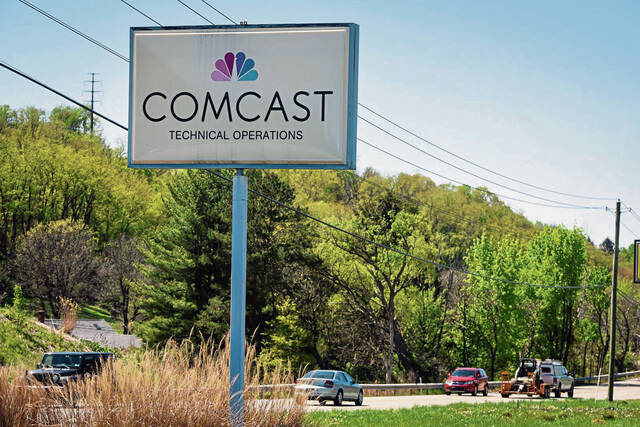Mandy Zalich knows just how important internet service has become in Westmoreland County. For many low-income residents, the rising costs of the service has left them more than just disconnected.
This week’s announcement from the Biden administration of a plan to provide $30 monthly subsidies for high-speed internet access is a welcome program for residents already dealing with financial struggles, said Zalich, executive director of Westmoreland Community Action, a nonprofit agency that provides social services and education programs for low-income residents.
“This will open up a lot of doors for folks,” she said. “This has become a struggle for a long time, and one of the benefits of the pandemic is an awareness of this need. More and more, the internet has become a utility, and it is essential to be part of the community.”
The Biden administration said 20 internet companies, including Comcast and AT&T, which provide service in Western Pennsylvania, have agreed to offer the discounted charge. Those companies cover about 80% of the US population, including 50% of the rural population, according to the White House. Nationwide, the program could make tens of millions of households eligible for free service through a current federal subsidy. The infrastructure package Congress passed last year allocated about $14.2 billion for the Affordable Connectivity Program.
Under the income guidelines, families of four with an annual income of about $55,000 will qualify. In general, those households making 200% of the federal poverty guidelines are eligible for the discount.
About 82,000 Westmoreland County residents, more than 23%, are living at or below the poverty level, Zalich said.
Westmoreland County participated in a broadband needs study in 2020 by the Southern Alleghenies Planning and Development Commission. It found that 10% of county homes have no internet access. The same study identified about a dozen internet providers that operate in the county, charging between $20 and $135 per month for broadband service.
“For a lot of individuals, it’s an unaffordable service,” Zalich said.
The opportunity for lower-income people to get affordable internet service “is so important to the underserved in the community,” said Carol Palcic, executive director of the Greensburg YWCA.
The need to reduce the cost of internet service “has been an issue for a long time” because so many people can’t afford the extra expense, said Karen Snair, executive director of the 54-member Allegheny Valley Association of Churches, which offers a range of social services to residents in Allegheny and Westmoreland counties from its Natrona Heights office.
“There are a lot of children who need to do schoolwork but do not have internet at home,” Snair said. “The kids that did not have it were at a huge disadvantage” when schools went to virtual learning during the covid restrictions, she said.
While many employers offered some form of hybrid work schedules, allowing workers to do their jobs from home, not all employees could afford internet service to work remotely, Snair said.
The plan to extend discounts for internet services to low-income residents comes at a time when the county has formed a task force to study how to expand the reach of broadband service to underserved communities in the county, said Dan DeBone, president of the Westmoreland Chamber of Commerce.
Providing internet services to those outer areas of the county will give those residents more opportunities for employment, as well as for education and performing tasks such as making appointments, DeBone said.
“There is such a large rural area. It is not going to happen overnight,” DeBone said.
Rich Cholodofsky is a Tribune-Review staff writer. You can contact Rich at 724-830-6293, [email protected] or via Twitter .
